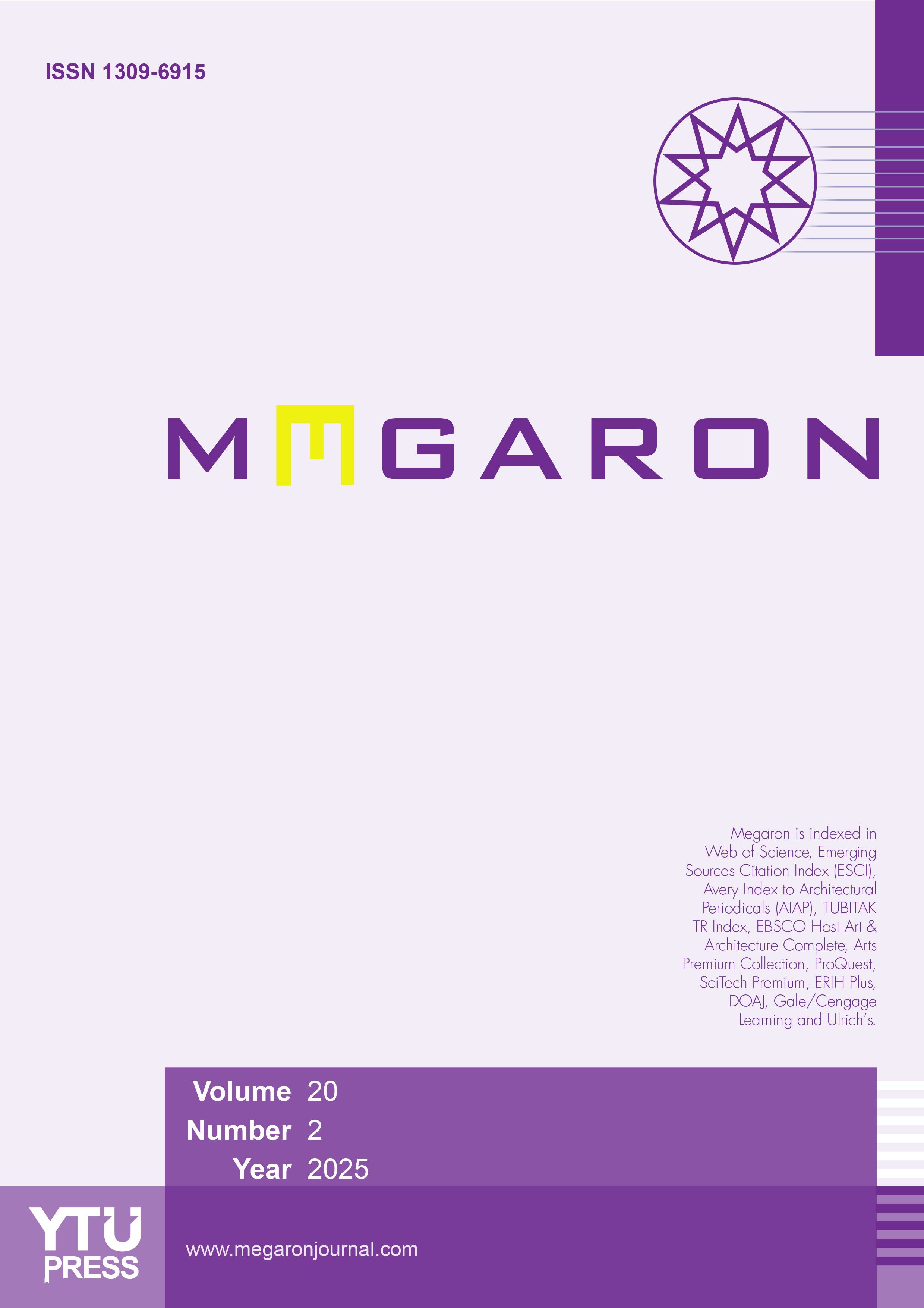Relating environmental comfort conditions to student satisfaction with remote learning: A case on design students
Buket Giresun Erdoğan, Simge KutsalDepartment of Architecture, Yildiz Technical University, Istanbul, TürkiyeRemote learning applications have crucial importance in preventing education processes from being interrupted under extreme conditions such as a pandemic. Numerous studies on the field are being performed, as it is thought that remote learning will become even more critical in time. Notably, the variety of built environments in different regional, social, cultural, and technological aspects encourages researchers to investigate such differences and student performance and satisfaction relating to their conditions. Focusing on design students, who may have more distinct requirements since the nature of the education program they are subject to, this article aims to present the comfort conditions of students, as well as the relationship of such conditions with the level of student satisfaction with remote learning. The method of this study includes a comprehensive survey, which has been delivered to architecture and interior architecture students via online channels, questioning their spatial, visual, auditory, and thermal comfort. The multiple regression analysis, which has been used in connecting comfort conditions and satisfaction, has resulted that the built environment has a slight yet significant effect on satisfaction level (R=0.374). This result is substantial considering the variety and complexity of factors affecting satisfaction with remote learning. Findings of this study include that visual comfort conditions are the most influential on student satisfaction, indicating the inference that improvements relating to these conditions will be quite effective. The results of this study provide a perspective for improving remote learning processes and adapting living environments to remote learning, based on different student groups.
Keywords: Auditory comfort, remote learning; spatial comfort; thermal comfort; visual comfortUzaktan eğitimde çevresel konfor koşullarının öğrenci memnuniyeti ile ilişkilendirilmesi: Tasarım öğrencileri üzerine bir örnek
Buket Giresun Erdoğan, Simge KutsalYıldız Teknik Üniversitesi, Mimarlık Anabilim Dalı, İstanbulPandemiler gibi zorunlu durumlarda eğitimin kesintiye uğramaması için uzaktan eğitim uygulamaları oldukça önemlidir. İlerleyen zamanlarda eğitim hayatındaki rolünün daha da artacağı düşünülen uzaktan eğitim uygulamaları için çeşitli araştırmalar yapılmaktadır. Özellikle yapılı çevrelerinin özellikleri bölgesel, sosyal, kültürel ve teknolojik açılardan farklılık göstermesi araştırmacıları bu farklılıkların, ölçülmesi ve değerlendirmesi üzerinde çalışmaya ve öğrencilerin performansını ve memnuniyetini araştırmaya teşvik etmektedir. Bu çalışma, aldıkları eğitimin doğası gereği diğer öğrencilerden farklı gereksinimlere ihtiyaç duyan tasarım öğrencilerine dikkati çekmeyi amaçlar. Tasarım öğrencilerinin sahip oldukları konfor koşullarını ortaya koymaya çalışırken aynı zamanda bu şartların e-eğitim memnuniyetleri ile ilişkisini ortaya koyar. Veri toplamak için kapsamlı bir çevrimiçi anket Türkiye’deki çeşitli okullarda mimarlık ve iç mimarlık bölümlerinde eğitim alan öğrencilerle paylaşıldı. Öğrencilerin içinde bulundukları ortamların mekânsal, görsel, işitsel ve termal konfor şartları sorgulandı. Konfor koşulları ile memnuniyet arasındaki bağlantıları belirlemek çoklu regresyon analizinden faydalandı. Yapılı çevrenin uzaktan eğitim için memnuniyeti nispeten düşük de olsa anlamlı bir şekilde etkilediği sonucuna ulaşıldı (R= 0,374). Bu sonuç memnuniyeti etkileyen çok fazla ve karmaşık parametreler ön görüldüğünde oldukça tatmin edicidir. Ayrıca görsel konfor şartlarının uzaktan eğitim memnuniyeti üzerinde diğer konfor şartlarının aksine daha etkili olduğu görülmüştür (B= 0.574). Dolayısıyla çalışma alanlarındaki görsel konfor şartlarındaki basit değişiklik ve iyileştirmeler, öğrencilerin uzaktan eğitimden alacakları memnuniyetin artmasını oldukça etkili olacaktır. Bu sonuçlar, özel çalışma gereksinimleri olan farklı öğrenci grupları dikkate alınarak uzaktan eğitimin iyileştirilmesine ve yaşam alanlarının uzaktan eğitime uyarlanmasına yardımcı olacak bir perspektif sağlar.
Anahtar Kelimeler: uzaktan eğitim, mekansal konfor, görsel konfor, işitsel konfor, termal konforManuscript Language: English








